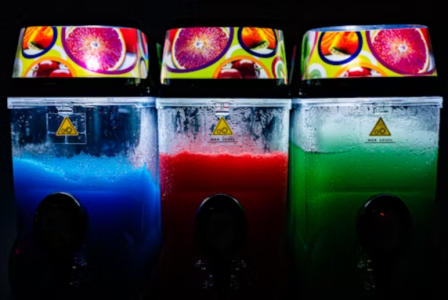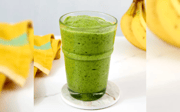This summer treat might be hiding something disgusting
- Replies 0
It’s icy. It’s sweet. It’s cheap. And on a hot day, it seems like the perfect way to cool down during a pit stop.
But before you reach for that brightly colored cup of frozen refreshment, experts say there’s something you should know.
Because what’s inside your favorite gas station slushie might not just be sugar and syrup—and it’s not what you think.
Sure, slushies seem harmless. They’re mostly water, flavoring, and a blast of carbonation.
But recent health investigations are raising eyebrows—and stomachs.
It turns out the danger isn’t the drink itself. It’s the machine.
Many gas stations cut corners when it comes to cleaning slushie dispensers.
Some skip detergent completely. Others don’t clean them for weeks.
Instead of following FDA and USDA guidelines—flush, sanitize, scrub, and lubricate—some employees just run plain water through the machine and call it a day.
Even worse? Some stations leave leftover slush sitting overnight.
This creates the perfect breeding ground for something deeply unsettling.
The most common offender? A microorganism called Serratia marcescens—also known as pink mold.
If you’ve ever seen a pink film in your shower or sink, you’ve met it.
Now imagine that same slime growing inside the nozzle of a machine churning your strawberry slush.
Pink mold thrives in moist, sugary environments, making slushie machines the ideal habitat.
Experts say ingesting pink mold can lead to:
The root issue isn’t the slushie—it’s the system. Cleaning duties fall on underpaid, overworked employees who are usually handling gas sales, inventory, and more.
And health inspectors, already stretched thin across 145,000+ locations, can’t possibly catch every dirty machine.
In short, the responsibility falls to the person holding the cup.
Read next:

Have you ever gotten sick from gas station food or drinks? Drop your story in the comments and help someone else stay safe this summer.
But before you reach for that brightly colored cup of frozen refreshment, experts say there’s something you should know.
Because what’s inside your favorite gas station slushie might not just be sugar and syrup—and it’s not what you think.
Sure, slushies seem harmless. They’re mostly water, flavoring, and a blast of carbonation.
But recent health investigations are raising eyebrows—and stomachs.
It turns out the danger isn’t the drink itself. It’s the machine.
Many gas stations cut corners when it comes to cleaning slushie dispensers.
Some skip detergent completely. Others don’t clean them for weeks.
Instead of following FDA and USDA guidelines—flush, sanitize, scrub, and lubricate—some employees just run plain water through the machine and call it a day.
Even worse? Some stations leave leftover slush sitting overnight.
This creates the perfect breeding ground for something deeply unsettling.
The most common offender? A microorganism called Serratia marcescens—also known as pink mold.
If you’ve ever seen a pink film in your shower or sink, you’ve met it.
Now imagine that same slime growing inside the nozzle of a machine churning your strawberry slush.
Pink mold thrives in moist, sugary environments, making slushie machines the ideal habitat.
Experts say ingesting pink mold can lead to:
- Stomach issues
- Urinary tract infections
- Even pneumonia in vulnerable people
The root issue isn’t the slushie—it’s the system. Cleaning duties fall on underpaid, overworked employees who are usually handling gas sales, inventory, and more.
And health inspectors, already stretched thin across 145,000+ locations, can’t possibly catch every dirty machine.
In short, the responsibility falls to the person holding the cup.
Read next:
- Pink slime alert: A doctor’s terrifying warning you can’t ignore
- A new frozen treat just landed—but not everyone’s sold
Key Takeaways
- Health officials warn that many gas station slushie machines are improperly cleaned or neglected entirely.
- The most common risk is pink mold (Serratia marcescens), which can cause infections and stomach issues.
- Machine maintenance is inconsistent due to low staffing and limited oversight.
- Experts advise avoiding slushies unless you're certain the equipment is sanitized properly.







